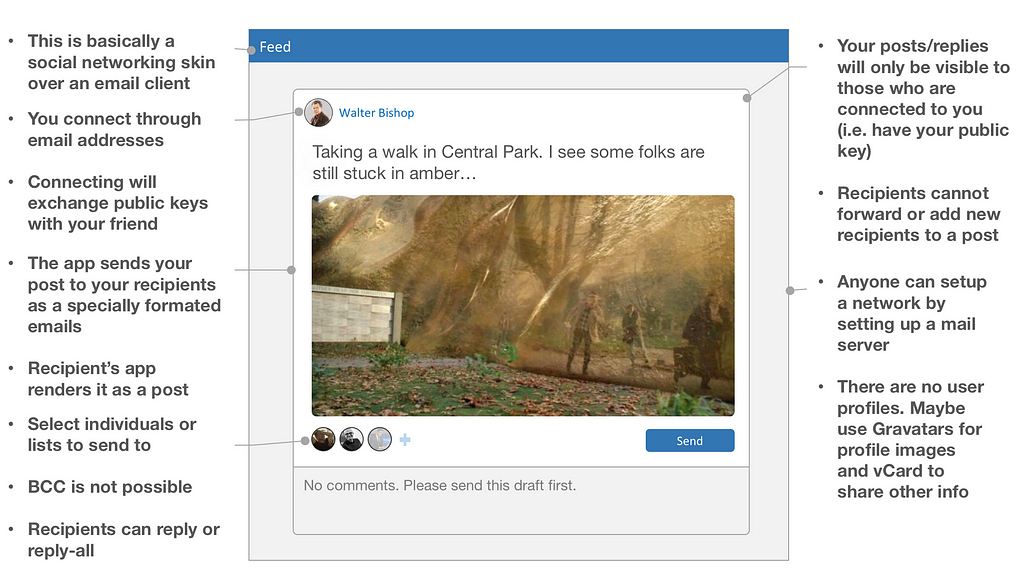Latest news about Bitcoin and all cryptocurrencies. Your daily crypto news habit.
With recent revelations about Facebook’s failure to secure users’ private data, there has been an understandable surge in ideas to replace it. Here I outline mine:
Consider a social network that uses email as its communications protocol and regular mail servers as the “cloud”. There is no “platform”, but an app which is basically a re-skinned mail client with certain features disabled or abstracted. There is no advertising.
Here is a very crude representation:
 An email based social media app
An email based social media app
- You download the app and enter your email credentials
- You add a profile picture, which the app will use to create a Gravatar, and some personal info, which the app will save locally as a vCard
- The app generates a key pair for you and stores it locally
- You enter the email address of a friend and send a connection request
- The app sends this request as a specially formatted email containing your vCard, Gravatar and public key
- If the friend already has the app, it appears there as a connection request. If not, it is shown in his regular email client as an invitation to download the app
- Your friend accepts the connection request
- His app stores your public key and vCard locally
- His app sends an acknowledgement to you as another specially formatted email, containing the friend’s public key, vCard and Gravatar
- Your app stores this data locally. You’re now connected
- If you want, you can add him to a local contact group, just like with an email client
- To share a new post, you insert text/media as you do with any social network
- But unlike other networks, you need to explicitly select your audience. There is no “public”
- Under the hood, this basically composes a new digitally signed email for each of the contacts
- The email is again specially formatted to be digested and rendered by the app
- If you use your regular email address for the app, you need to create a filter in your regular email client to prevent app-generated emails from clogging your inbox
- Or, you can setup a dedicated email address, or your own mail server
- There is no BCC. All recipients know who the other recipients are
- You cannot send anything to people you’re not connected to
- Only you can add recipients to your post. Recipients can only reply/reply-all
- Replies will appear as comments
- Data retention is identical to emails — delete from server or delete from local device as you see fit
Benefits should be self-explanatory. I’m sure there are holes in this concept. Please feel free to point them out.
Email re-skinned as a social network was originally published in Hacker Noon on Medium, where people are continuing the conversation by highlighting and responding to this story.
Disclaimer
The views and opinions expressed in this article are solely those of the authors and do not reflect the views of Bitcoin Insider. Every investment and trading move involves risk - this is especially true for cryptocurrencies given their volatility. We strongly advise our readers to conduct their own research when making a decision.